Rohingya Children and the Joy of Oblivion
Image Courtesy: Trina Shankar
In a small makeshift camp in Jammu’s Narwal area, almost 4000 kilometers from their homes in Myanmar’s Rakhine State, reside hundreds of Rohingya families. From those who came over 10 years ago, to some who fled after the most recent attacks a few months back, the camp is full of people who have lived through terror and pain that is unimaginable to most.
Often described as the world’s ‘most persecuted minority’, the Rohingya are a largely Muslim ethnic community that originated in Buddhist Myanmar. Despite having lived in Myanmar for centuries, they are not considered to be citizens of the nation, and have been on the receiving end of brutal attacks at the hands of the Myanmar military. As a result, they have been forced to flee a place they once called home and give in to lives as refugees in neighbouring countries, especially India and Bangladesh.
Of the many thousand Rohingya living in India, around 16,500 have been issued refugee cards by The United Nations High Commissioner for Refugees (UNHCR); a card, which is said to “prevent harassment, arbitrary arrests, detention and deportation”. However, in August 2017, India’s Minister of State for Home Affairs, Kiren Rijiju, said that the UNHCR registration was irrelevant and that all Rohingya refugees would be deported back to Myanmar.
Even though a couple of weeks later the Minister said that the deportation plans were yet to be confirmed, and petitions against the deportation are still being heard, the fear of being sent back to a place full of bloodshed and violence still looms large over the entire community.
Amidst all the crisis and trauma, there still remains a beam of innocence and hope; a generation, that is so far removed from the reality that their parents and grandparents have had to live through, one, that has changed their lives in ways they’ll never fully grasp. Although life in India too has not been easy for them, having been on the receiving end of attacks from the government and so-called nationalist groups, most Rohingya feel that it is a big step up from the torture they faced in Myanmar. ‘We would rather die here than go back’ was a line echoed by many. Glimpses of the children’s lives in Narwal are a window into how despite living in less than okay conditions, the innocence and joy is still alive within them.
Children at Madrasa Riyal-Ul-Ullom run around, playing, laughing and wrestling with each other, just minutes after classes are adjourned.
After being scolded by the Maulvi for creating a ruckus, they sit quietly at the classroom door, eagerly waiting for their attendance to be marked so that they can go out and play again.
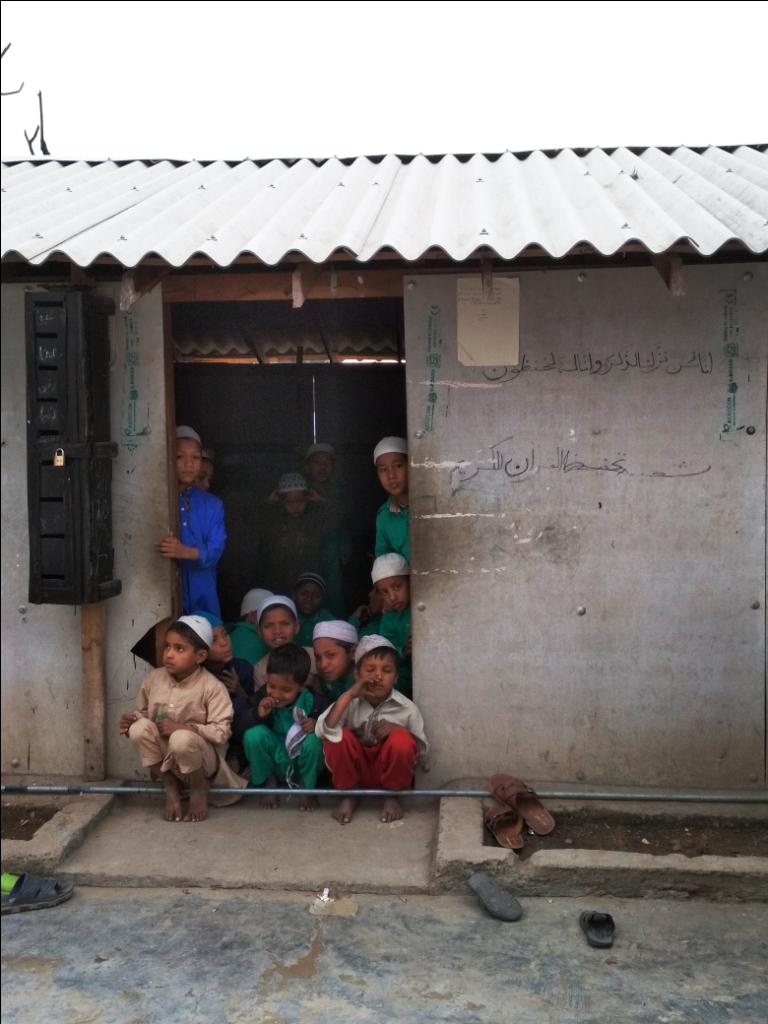
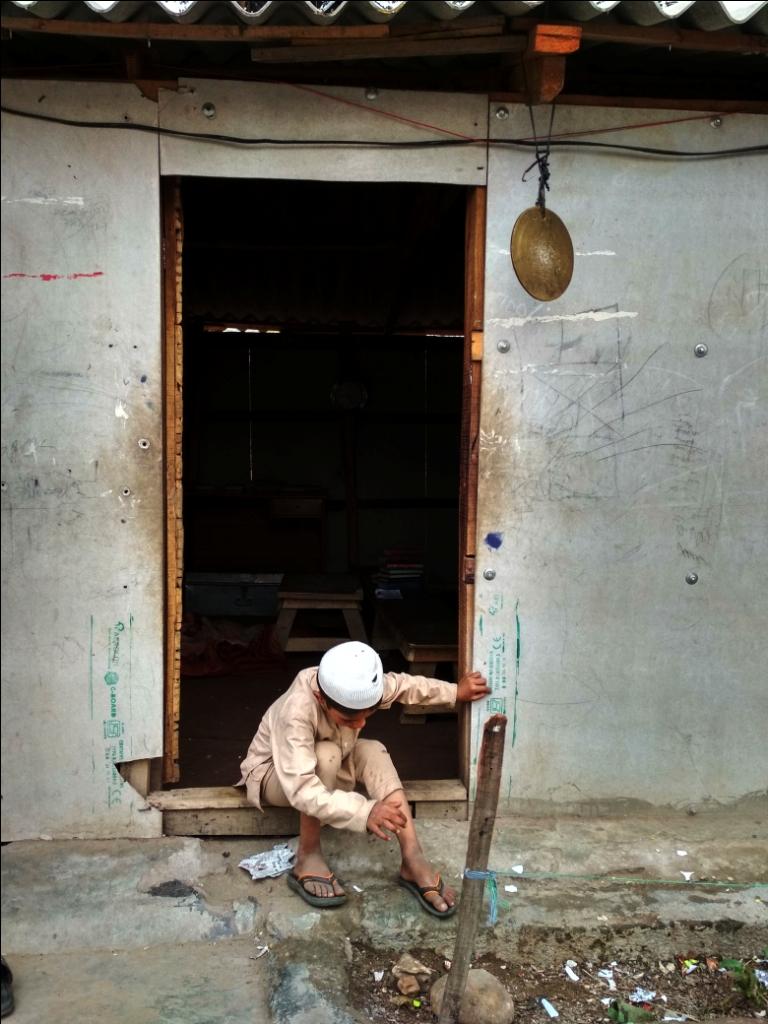
While the older kids get back to studying, the younger ones, intrigued by the presence of camera decide to strike a pose.
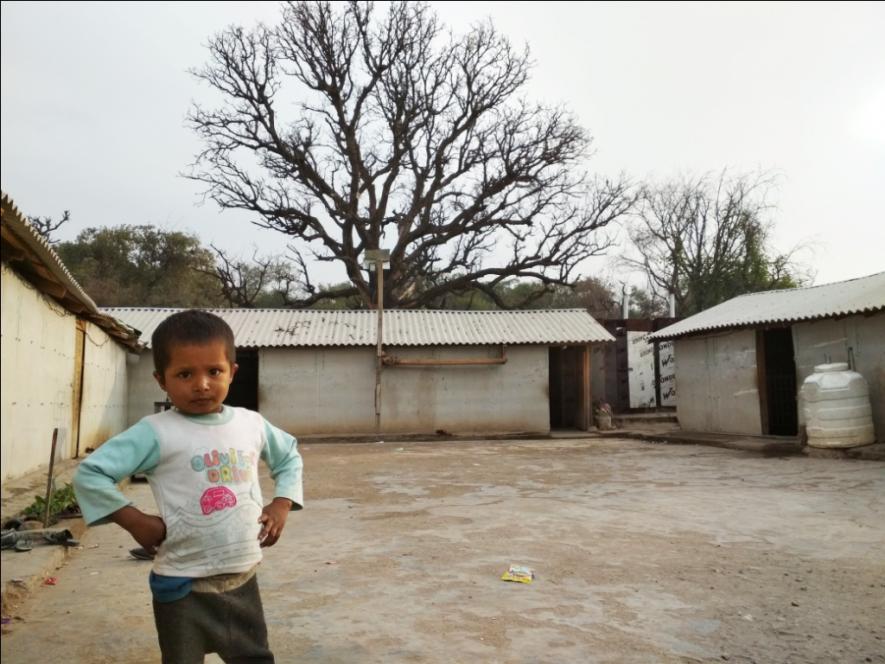
Back home at the camp, the fun and games continue. While some go the simple way, playing hide and seek in gullies, a gang of boys peeps into a window to watch their friends play WWE video games.
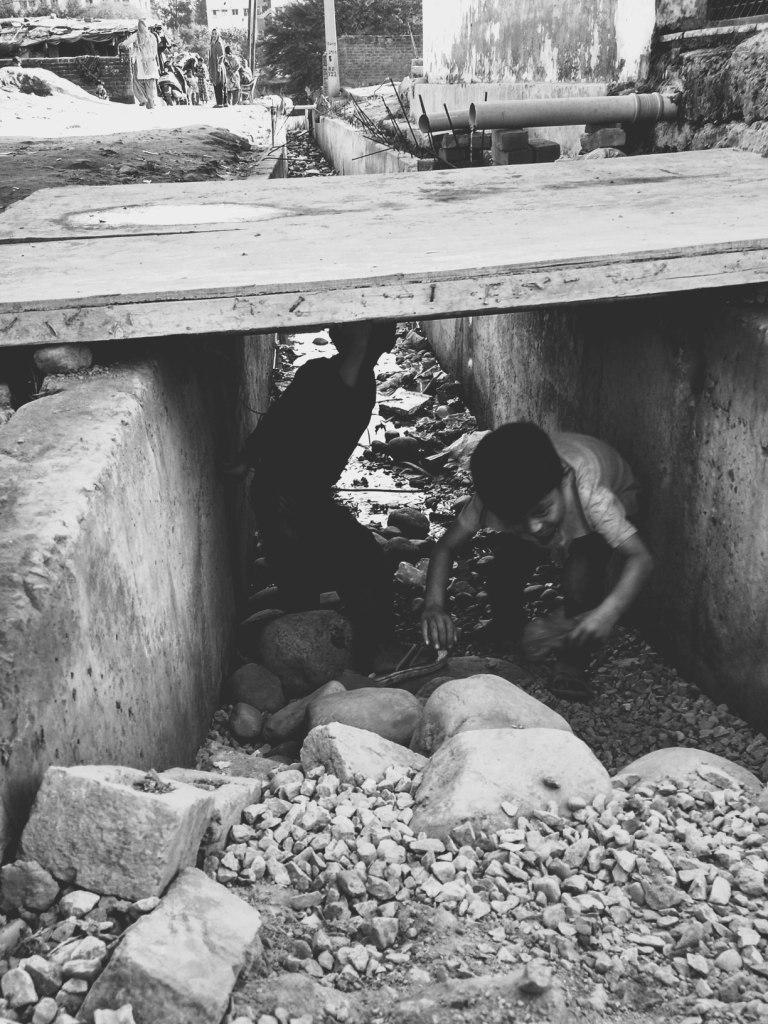
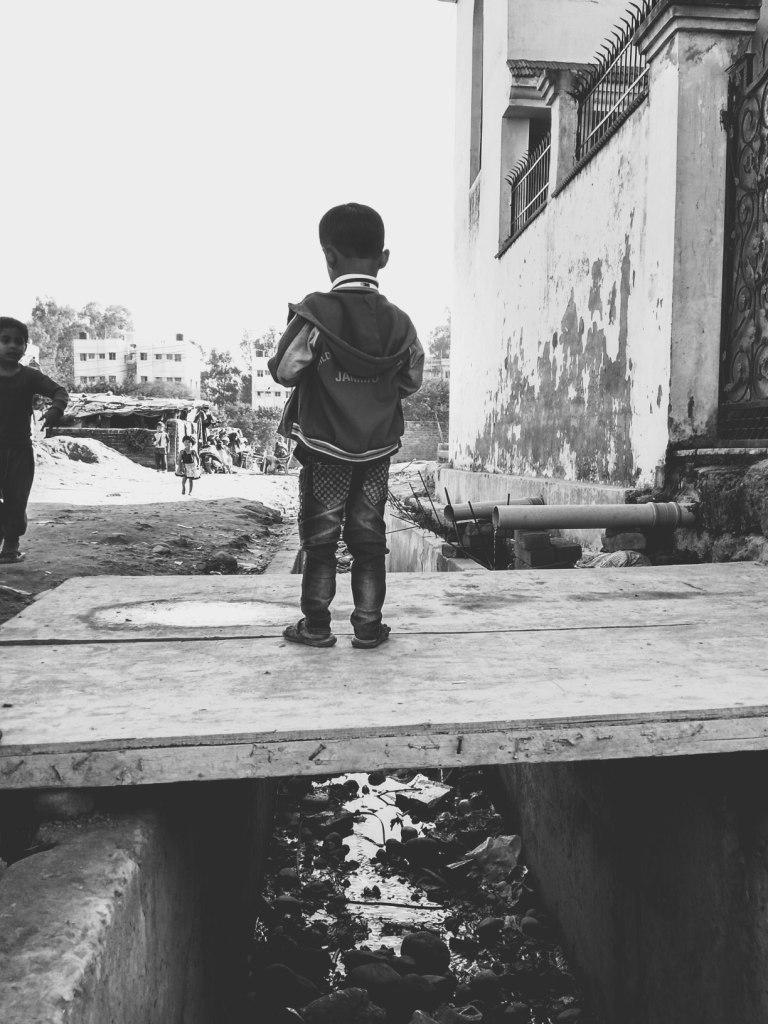
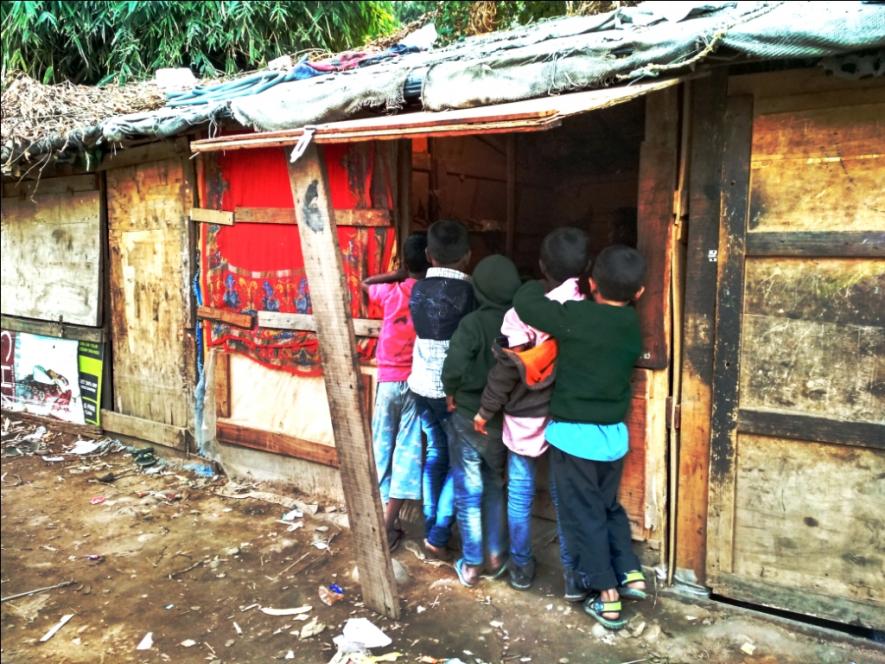
Get the latest reports & analysis with people's perspective on Protests, movements & deep analytical videos, discussions of the current affairs in your Telegram app. Subscribe to NewsClick's Telegram channel & get Real-Time updates on stories, as they get published on our website.
























